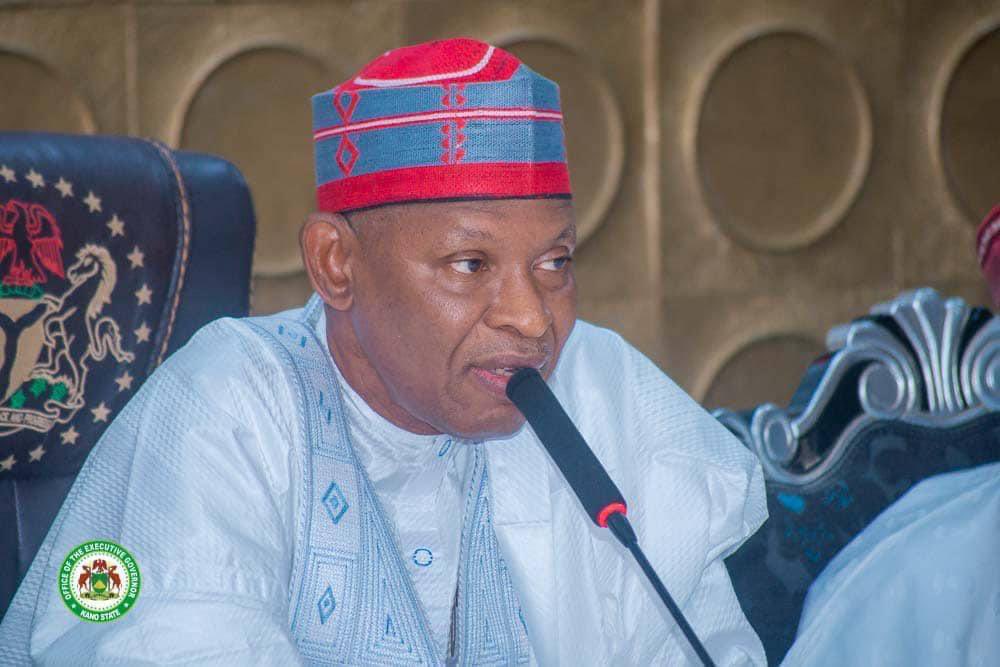The Kano State Government’s recent ban on live political programs and restrictions on journalistic questioning have ignited a firestorm of controversy, raising concerns about freedom of the press and democratic principles within the state. The new policy, announced by Information Commissioner Ibrahim Waiya, prohibits live political broadcasts across all media platforms and mandates that interviewees sign an undertaking to avoid making statements deemed abusive, defamatory, or culturally offensive. Furthermore, journalists are barred from asking “provocative” questions or employing suggestive gestures that could potentially elicit controversial responses or tarnish the state’s image. While the government defends these measures as necessary to preserve Kano’s cultural and religious values, critics argue that they represent a thinly veiled attempt to stifle dissent and control the narrative.
The government’s rationale for the ban centers on the purported need to maintain cultural sanctity and curb hate speech. Waiya maintains that the policy aims to promote responsible communication and protect the state’s dignity, not to silence opposition voices. He points to previous collaborations with media leaders, claiming that they have resulted in “remarkable progress” in reducing unethical broadcasting practices. However, this narrative is challenged by the simultaneous detention of journalists Buhari Abba and Ismail Auwal, allegedly on Waiya’s orders, following the publication of an article critical of the government. This incident casts a long shadow over the government’s claims of promoting responsible communication, suggesting instead a pattern of suppressing unfavorable coverage.
Critics argue that the new restrictions represent a dangerous erosion of press freedom and a contraction of civic space. By prohibiting live political discussions and dictating permissible lines of questioning, the government effectively limits the public’s access to diverse perspectives and inhibits robust political debate. The chilling effect of such measures can discourage journalists from pursuing critical investigations and holding those in power accountable, ultimately undermining the foundations of a healthy democracy. This concern is amplified by the requirement that interviewees sign an undertaking to avoid controversial remarks, which can be interpreted as a form of pre-publication censorship and a tool to suppress dissenting opinions.
The case of the detained journalists further fuels anxieties about the government’s true intentions. The arrest of Abba and Auwal suggests that the administration is willing to use its power to silence critical voices and punish those who challenge its narrative. This incident serves as a stark reminder of the potential consequences for journalists who dare to question the government’s actions. The arbitrary nature of the detentions, seemingly linked to the publication of an article critical of the government, raises serious concerns about the rule of law and the protection of fundamental freedoms in Kano State.
Human rights organizations and press freedom advocates have strongly condemned the government’s actions, urging a reversal of the ban and a commitment to protecting journalistic independence. They argue that safeguarding cultural values should not come at the expense of free expression and the public’s right to information. A thriving democracy depends on a free and independent press that can hold power accountable and facilitate open dialogue on matters of public concern. By restricting the media’s ability to perform this crucial function, the Kano State government risks undermining the very principles of democratic governance.
The situation in Kano State underscores the delicate balance between cultural sensitivity and freedom of expression. While the government has a legitimate interest in promoting social harmony and preventing the spread of harmful rhetoric, its approach raises serious concerns about overreach and potential abuse of power. The international community and human rights organizations will undoubtedly continue to monitor the situation closely, advocating for the restoration of press freedom and the protection of journalists’ rights to report without fear of reprisal. The future of democratic discourse in Kano State hangs in the balance, and the government’s response to this growing criticism will be a crucial test of its commitment to fundamental freedoms.














